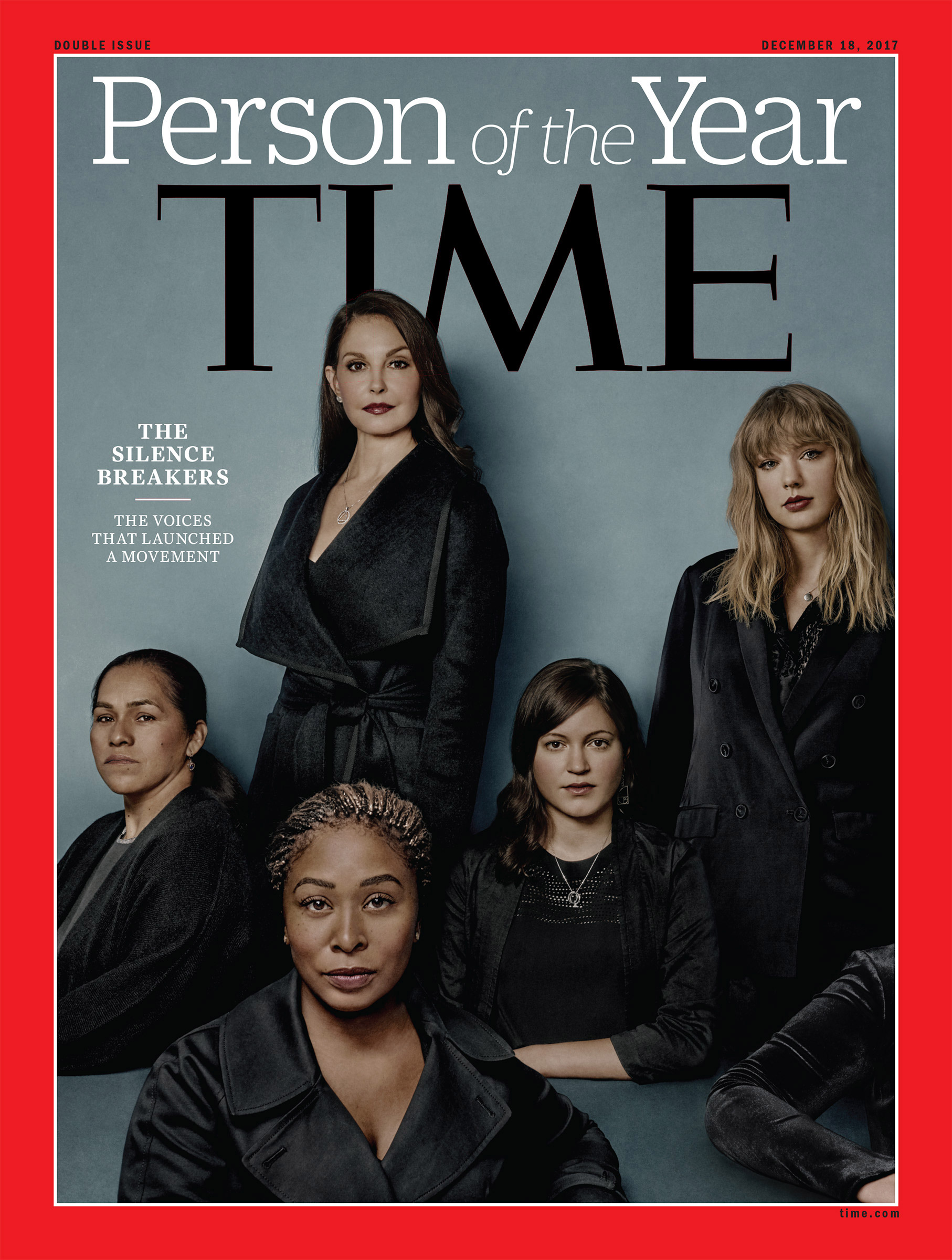Five years after TIME’s Silence Breakers cover story for the 2017 Person of the Year issue, survivors of sexual assault and harassment are still fighting to be heard. Spurred by #MeToo, which went viral that October, activists, politicians, and lawyers have pushed laws that would make covering up harassment more difficult. But although they’ve made progress on the legal front, the risks of stigmatization and retaliation persist.
For decades, employers wielded mandatory arbitration agreements and nondisclosure agreements (NDAs) to keep claims out of the public eye. Mandatory arbitration occurs outside a courtroom, and there’s no appeals process. Nondisclosure agreements prevent victims from discussing their experiences. “This is not an issue that legislators focused on much at all before #MeToo,” says Andrea Johnson, director of state policy at the National Women’s Law Center. Since 2017, however, 22 states and the District of Columbia have passed more than 70 workplace anti-harassment bills. In March, President Biden signed a ban on forced arbitration in cases of sexual assault and harassment. And in November, Congress passed the Speak Out Act, prohibiting the use of NDAs in cases of sexual harassment.
Read More: The Teeny Tiny Fine Print That Can Allow Sexual Harassment Claims to Go Unheard
But the legislation “is not necessarily a silver bullet,” Johnson says. And while TIME’s cover story and these laws focus on workplace cases, the problem goes beyond that. In 2018, Amber Heard wrote a Washington Post op-ed calling herself “a public figure representing domestic abuse.” Her ex-husband Johnny Depp sued her for defamation and won, with the jury awarding him $15 million this June. Many legal experts expressed concern that the trial would have a silencing effect on victims. But it wasn’t just the ruling that worried them. Misogynistic memes and edited videos depicting Heard as a liar and abuser were rampant on TikTok and Twitter, a signal to survivors that they might suffer the same if they speak up.
Silence Breakers featured in TIME’s story say progress has slowed. Actor Danny Masterson’s rape case ended in mistrial. Louis CK, who admitted to sexually harassing women, won a Grammy in April. Outside Hollywood, the idea that #MeToo has run amok manifests in hostility toward accusers.

“Lately there’s been a false narrative circulated that you can be canceled for anything,” says University of California, Berkeley, professor Celeste Kidd, who spoke to TIME about her experience reporting harassment. “The rumor will be that a professor was fired for saying one inappropriate thing on Zoom. But what these posts expressing outrage leave out is that it was just one instance of a long history of racial or gender discrimination.” Kidd says students “fear that their claims will be dismissed, that they’ll be called snowflakes.”
Read More: The #MeToo Silence Breakers Are the 2017 Person of the Year
Gabrielle Eubank, a Silence Breaker who sued New York’s Plaza Hotel with five other women in 2017, moved to Indiana in 2019 because she felt her reputation had been “ruined” in the city’s hotel world. But she continued to be harassed online. “There is no way to stop it,” she says. “What happened to the normal people—not the celebrities—who were a part of this issue?”
Johnson remains optimistic. She cites a September Pew poll that found 49% of Americans support the #MeToo movement. Only 21% oppose it. “While I might feel like we’re taking some steps back, the public is very much moving forward,” she says. “Survivors are going to keep pushing until cultural change is permanent.”
More Must-Reads from TIME
- Donald Trump Is TIME's 2024 Person of the Year
- Why We Chose Trump as Person of the Year
- Is Intermittent Fasting Good or Bad for You?
- The 100 Must-Read Books of 2024
- The 20 Best Christmas TV Episodes
- Column: If Optimism Feels Ridiculous Now, Try Hope
- The Future of Climate Action Is Trade Policy
- Merle Bombardieri Is Helping People Make the Baby Decision
Write to Eliana Dockterman at eliana.dockterman@time.com